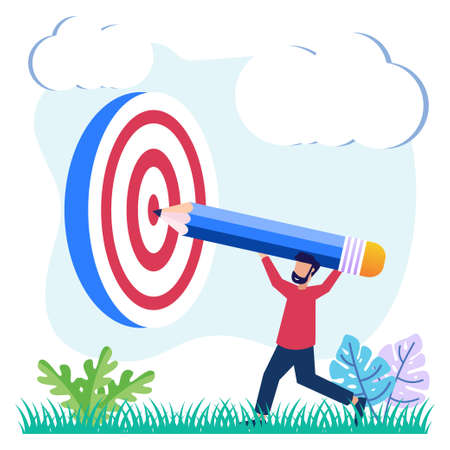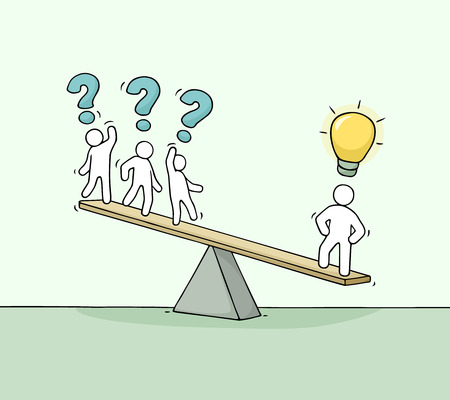The Popularity of Career Assessment Tools in the U.S.
In the fast-paced landscape of American work culture, career assessment tools have become a staple for professionals aiming to reach new heights. From bustling urban hubs to remote home offices, people across the U.S. are seeking resources that offer not just a snapshot of their strengths, but a roadmap to personal growth and fulfillment. For many, tools like Myers-Briggs and CliftonStrengths provide more than just personality labels—they act as strategic guides for self-awareness and job alignment. Americans value individuality and self-improvement, making these assessments appealing for anyone who wants to make intentional career moves or simply better understand themselves. As the workforce evolves and competition intensifies, it’s no wonder that career assessments remain a go-to resource for those ready to unlock their potential and shape their professional journey with clarity and confidence.
Overview of Myers-Briggs Type Indicator (MBTI)
The Myers-Briggs Type Indicator, or MBTI, is one of the most widely recognized personality assessment tools in the United States. Developed by Katharine Cook Briggs and her daughter Isabel Briggs Myers during World War II, MBTI was inspired by the theories of Swiss psychiatrist Carl Jung. Its mission? To help people discover their natural preferences and strengths, empowering them to thrive in both their careers and personal lives.
How MBTI Works
MBTI sorts individuals into 16 unique personality types based on four key dichotomies. These dichotomies represent how we interact with the world, process information, make decisions, and organize our environment. Here’s a quick breakdown:
| Dichotomy | Preference 1 | Preference 2 |
|---|---|---|
| Energy Source | Extraversion (E) | Introversion (I) |
| Information Processing | Sensing (S) | Intuition (N) |
| Decision Making | Thinking (T) | Feeling (F) |
| Lifestyle Structure | Judging (J) | Perceiving (P) |
Your unique combination across these four spectrums results in a type—like ENFP or ISTJ—that reflects your preferred way of navigating life’s challenges.
American Cultural Roots of MBTI
The MBTI is deeply woven into the fabric of American culture. It emerged during a period when self-discovery and individualism became core American values. The idea that everyone has unique gifts—and that understanding these can lead to greater career satisfaction—resonates strongly in U.S. workplaces and universities.
Why MBTI Remains a Staple in the U.S.
From Fortune 500 companies to college career centers, MBTI continues to be a go-to tool for team building, leadership development, and personal growth. Americans appreciate its focus on positive psychology: instead of labeling weaknesses, MBTI highlights what you do best. This strength-based approach fuels motivation and optimism—key ingredients for success in the American dream.

3. CliftonStrengths: Focusing on What You Do Best
If you’ve ever wondered what makes you truly unique in the workplace, CliftonStrengths is a tool designed just for that. Unlike traditional assessments that often spotlight areas for improvement, CliftonStrengths—formerly known as StrengthsFinder—embraces a strengths-based philosophy. Instead of asking, “Where do I fall short?” it encourages you to ask, “What do I naturally do best?” This simple shift aligns beautifully with core American values: individuality, self-improvement, and growth.
Developed by Gallup, CliftonStrengths identifies your top talents from a list of 34 themes, such as Communication, Analytical, or Achiever. The assessment’s approach is refreshingly positive; it isn’t about labeling you or boxing you in. Instead, it’s about recognizing your unique combination of strengths and learning how to leverage them—in your career and beyond.
This mindset fits perfectly within the American cultural landscape, where people are encouraged to “play to their strengths” and celebrate what sets them apart. In workplaces across the U.S., there’s an increasing recognition that teams succeed when each member brings their own brand of excellence to the table. CliftonStrengths taps into this spirit, helping individuals shine brighter by focusing on what they already do well.
Ultimately, using CliftonStrengths isn’t just about personal insight—it’s a launching pad for meaningful growth. By embracing your natural talents and intentionally developing them, you set yourself up for greater satisfaction and success in both life and work. It’s a proactive approach rooted in positivity—a distinctly American way to pursue progress while staying true to yourself.
4. Other Commonly Used Assessments in the U.S.
While the Myers-Briggs Type Indicator (MBTI) and CliftonStrengths are widely recognized, America’s career assessment landscape is much broader. Two other notable tools are the Strong Interest Inventory and the Holland Code (RIASEC). These assessments offer unique perspectives and often complement each other, helping individuals gain a well-rounded understanding of their interests, values, and potential career paths.
Strong Interest Inventory
The Strong Interest Inventory has been a staple in American career counseling for decades. It measures a person’s interests in a variety of occupations, work activities, leisure activities, and school subjects. The results help guide users toward careers that align with their personal interests and preferences—often uncovering options they hadn’t previously considered.
Holland Code (RIASEC)
Developed by psychologist John Holland, the Holland Code classifies people and work environments into six categories: Realistic, Investigative, Artistic, Social, Enterprising, and Conventional. This model is easy to understand and use for both students and adults exploring new opportunities or seeking greater job satisfaction.
Comparing Assessment Tools
| Assessment Tool | Main Focus | Primary Use |
|---|---|---|
| Myers-Briggs Type Indicator (MBTI) | Personality Types | Self-awareness & Team Dynamics |
| CliftonStrengths | Strengths & Talents | Personal Development & Career Growth |
| Strong Interest Inventory | Occupational Interests | Career Exploration & Planning |
| Holland Code (RIASEC) | Interest Themes/Work Environments | Career Matching & Guidance |
The Value of Diversity in Career Assessments
This diversity in available assessments allows Americans to approach career development from multiple angles. Whether you’re looking to better understand your personality, discover hidden strengths, or find careers aligned with your passions, there’s an assessment tool designed to support your journey. By combining insights from different tools, you can gain deeper clarity about your unique path and embrace opportunities with confidence.
5. Comparing Approaches: Personality vs. Strengths
Methods: How They Measure You
The Myers-Briggs Type Indicator (MBTI) and CliftonStrengths take very different approaches to self-discovery. MBTI uses a series of questions to sort people into 16 personality types based on preferences like Introversion vs. Extraversion or Thinking vs. Feeling. It’s all about understanding how you process information and interact with the world. On the other hand, CliftonStrengths asks you to reflect on real-life scenarios, then identifies your top 5 “talent themes” out of 34 possible strengths. Instead of labeling you, it highlights what you naturally do best, encouraging you to leverage those talents every day.
The Language: Types vs. Talents
Language shapes our mindset, and MBTI and CliftonStrengths speak in different tongues. MBTI gives you a four-letter type (like INFJ or ESTP), which can feel like joining a club with its own set of traits and quirks. This kind of language can be comforting—“I’m an ENFP, that’s just who I am!”—but sometimes it feels limiting if you want to break out of the mold. CliftonStrengths, by contrast, talks about “themes” and “strengths.” Its language is rooted in growth, suggesting that your talents can be developed into superpowers with practice and intention.
Impact on Career Paths: Guidance or Growth?
In the U.S., both tools are popular in workplaces and career counseling, but they influence people differently. MBTI is often used for team-building or finding roles where your type might thrive; it can help explain why certain tasks drain or energize you. However, some critics argue that its categories are too rigid for our ever-changing careers. CliftonStrengths flips the script—it encourages you to double down on what you’re already great at instead of trying to “fix” weaknesses. This strengths-based approach aligns well with modern American work culture, which values authenticity and personal branding. Ultimately, MBTI offers insight into how you see the world, while CliftonStrengths empowers you to shape your own path by using your unique gifts as fuel.
6. How to Choose the Right Assessment for Your Career Journey
When it comes to picking a career assessment tool, there’s no “one-size-fits-all” solution. In the U.S., we have a wealth of options like Myers-Briggs, CliftonStrengths, and others, each with its own strengths and focus areas. So how do you choose the right one for your unique journey? Here are some practical tips to help you make a decision that truly supports your personal growth and professional goals.
Reflect on Your Career Stage
Start by considering where you are in your career. Are you a recent graduate just starting out, or are you a mid-career professional seeking new challenges? Tools like Myers-Briggs can be helpful for those looking to understand their personality and communication styles early on, while CliftonStrengths is often favored by professionals aiming to maximize their impact and leadership as they move up the ladder.
Define Your Personal Goals
What do you hope to achieve with an assessment? If you want deeper self-awareness and better teamwork skills, Myers-Briggs might be your go-to. If your goal is to identify what makes you exceptional so you can excel in your field, CliftonStrengths could be a better fit. Write down your objectives—whether it’s finding the right job fit, building confidence, or improving relationships at work—and look for tools that align with those aims.
Embrace a Growth Mindset
The American workplace values adaptability and lifelong learning. Whichever assessment you choose, approach it with an open mind. Remember, these tools are meant to guide—not define—you. Use them as stepping stones for self-reflection and action plans rather than as labels set in stone.
Research & Seek Feedback
Check out reviews from American professionals on LinkedIn or career forums, and don’t hesitate to ask mentors or colleagues about their experiences with different assessments. Sometimes your organization may even offer workshops or discounted access to certain tools.
Take Action & Revisit Regularly
Your career path will evolve, so revisit assessments periodically as your goals shift. What served you well at one stage might need updating later on. Stay curious, stay proactive, and let these tools empower you—not limit you—as you build a career that reflects your true strengths and aspirations.


